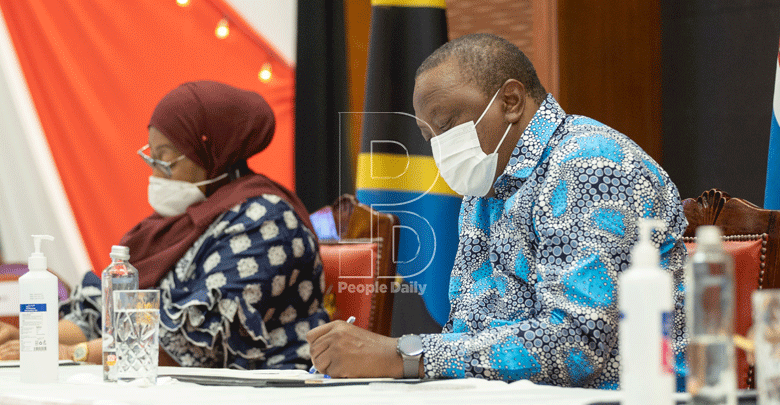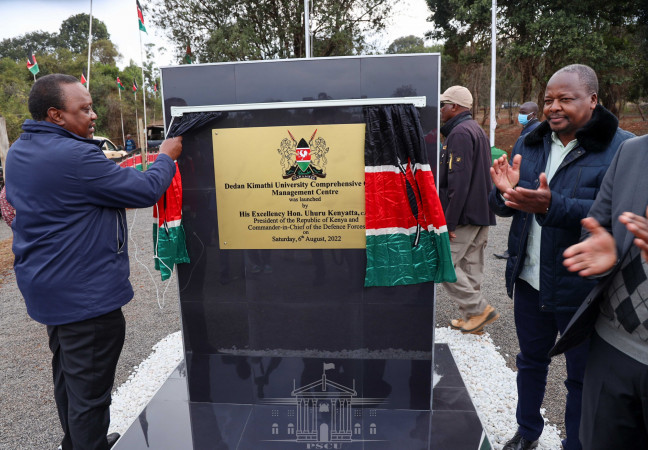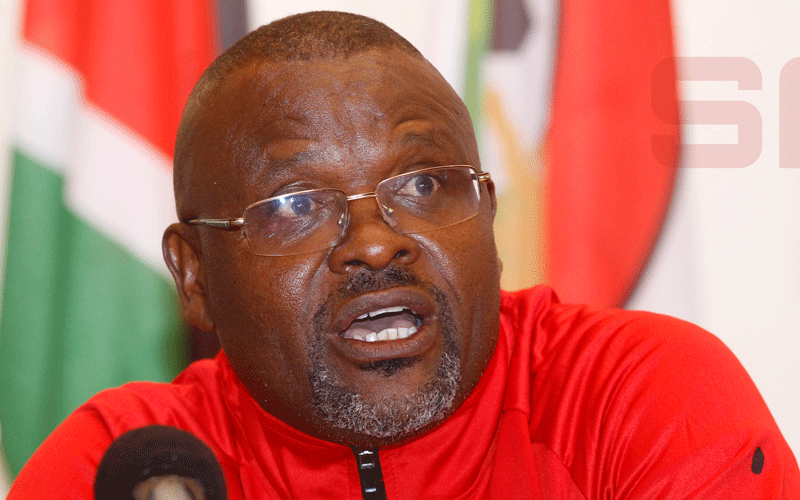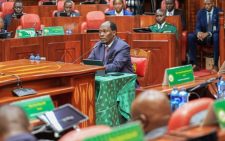Kenya, Tanzania soften stance to drive investments and trade

President Uhuru Kenyatta yesterday directed Agriculture Cabinet Secretary Peter Munya to clear consignments of Tanzanian maize blocked at borders within two weeks and ease pressure on trade and the cost of foodstuff.
This comes as plans to unblock non-tariff barriers (NTBs) which have hindered trade between the two countries took centre-stage during meetings between the two neighbouring countries in Nairobi.
“On the maize that is stuck at the border I have given you two weeks to ensure that the stock is cleared,” said President Kenyatta.
Speaking during a joint Kenya-Tanzania Business Forum which was attended by his Tanzania counterpart, Suluhu Samia Hassan, Uhuru said the maize stuck at the border had created unnecessary pressure at the Namanga and Holili One Stop Border crossing points, preventing free flow of trade.
Other measures Uhuru directed included the lifting of work permit and visa requirements for the Tanzania investors, but cautioned the investors against competing with each other, and instead focus on creating a conducive environment for businesses to thrive.
“We would like to see many investors from Tanzania coming to do business in Kenya.
And I want to say this, Tanzania investors are free to come and do business in Kenya without being required to have business visas or work permits.
The only thing you will be required to do is to follow the laid down regulations and the laws that are in place,” said the President.
President Kenyatta also tasked the ministers of health from both countries to move with speed and streamline Covid-19 containment protocols required for traders to cross the borders unhindered.
Although the two neighbours boast a vibrant and entrepreneurial private sector, trade between the two countries has not thrived to the expected levels going by the decline in volumes of trade.
Last year, total trade value between the two countries was Sh58 billion, a slight decrease from the Sh60.4 billion recorded in 2012, a situation President Uhuru said “reflected challenges in the trade regimes which we should be urgently addressed.”
Private sector
Tanzania’s private sector players called for a joint ventures with their Kenyan counterparts, to tap comparative advantages and increase trade, investment and jobs.
According to Sylevester Francis, a board member with the Tanzania Private Sector Foundation (TPSF), this would create a win-win-situation, removing the NTBs, and growing trade volumes anchored on the two ready markets of over 100 million people.
President Suluhu welcomed Kenyan private sector to invest in Tanzania, saying the sector held the “the key to driving growth, that will deliver jobs, transform labour market, open up opportunities and unleash entrepreneurial spirit.”
Paul Maduhu, Executive Director of Tanzania Investment Centre (TIC) said there were ready investors opportunities in the pharmaceutical and medical equipment sector, as well as agriculture and agro-processing.
“Tanzania imports 90 per cent of its pharmaceutical and medical equipment. In the agro-processing space, 80 per cent of the cotton we export is raw, presenting opportunities in value addition,” said Maduhu.
Jackline Mkindi, a TPSF board director said harmonisation of standards and practices, especially the Phytosanitary Measures (SPS) was key to tapping the vast opportunities for investment in both countries.
“It is critical now that we agree to harmonise the finalisation of SPS protocols as that is how we will facilitate agriculture or agribusiness trade between our countries,” said adding.
“The discussion should not only end at SPS as a block. We should go further and think how as a team we should tackle the market in different blocks like the European Union.”















